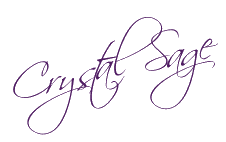I added an 8th step that I hope you and more people can reach quickly.
These phases may last for weeks, months, or years, depending on how quickly you handle, understand, process and heal the following. Below this post I’ve listed a few homeopathic remedies that are helpful with grief and depression. You may want to give them a try, or suggest them to others, who you know are struggling.
_____________________________________________________________________________________
1. SHOCK & DENIAL – Most people react to learning of their perceived loss with a numbed disbelief. You may deny the reality in order to avoid the emotional pain. Shock provides emotional protection from being too overwhelmed. Although it can be unbearable for some, it is important that you experience the pain fully, and not hide, avoid, or escape from it with alcohol, drugs or any other symptom treatment for a long-term, because the suppressed emotions will turn into PTSD. So release and heal bottled up emotion in a constructive way, ASAP.






6. ACCEPTANCE & HOPE – The better you can accept your situation, the easier it will be to deal with the reality of your life sooner. I know it can be especially difficult mourning a child. Acceptance does not necessarily mean instant happiness. But you will begin to look forward to and actually plan things for the future. Eventually, you will be able to think about your loved one without pain. With proper healing, and self-acceptance, you will once again anticipate having good times and find joy again. The sooner in life that we can learn, realize and accept, that this life is not eternal, the quicker we can move through these stages and with more ease.


8. UNDERSTANDING & GRACE – Once people begin to understand the natural cycle of life; fear, stress, the feeling of attachment to others and grief lessen. Through healing emotional dis-ease, the duration through the stages of grief and detachment from others can be greatly shortened and less overwhelming, and eventually, so-called death will/can be viewed from a new positive perspective without grief at all, but a time for celebration, and appreciation for life. Eventually with enough healing, people will be able to skip right over or go through the stages with ease. All healing brings more grace to ones life, and closer to knowing our True-self, where peace and true happiness reside. This is my dream for humanity. Remember that everyone is responsible for their own fate, and bodily death transition is a natural part of the UPward cycle of living and renewal of life. Read the Peaceful Passing Page if you haven’t already. Read more about forgiveness here. http://www.truehealingsolutions.com/forgiveness/
“We are only on loan to each other.” Unknown
“Your children are not your children. They are the sons and the daughters of life’s longing for itself.
They come through you but not from you, and though they are with you they belong not to you.” Khalil Gibran
______________________________________________________________________________________________________________________________________________________
Homeopathic Remedies for Grief and Depression
Ignatia
The personality type for this remedy tends to become resentful, secretive and moody while suffering inwardly, —shutting themselves off. They appear sad but don’t express it publicly because they can’t; then once they are alone, thoughts of the loss come back. They fight the tears, swallow the feelings, and get a lump in the throat and/or a feeling of constriction in their chest. They sigh and yawn in an (unconscious) attempt to get some oxygen, and this makes them feel a bit better. They become anti-social, not wanting company or sympathy (although they don’t adversely reject it). They want to be alone to cry, because they don’t want to cry in front of others. When they do break down they will cry loudly, but may feel embarrassed, so they may laugh at the same time.
Natrum Muriaticum
The personality type for this remedy carries more deep-seated grief, and are similar to Ignatia type. These are very sensitive, intensely private people who can appear cool, because they are reluctance to talk and express their feelings, as they don’t want others to know they are hurting. They are sensitive to other people’s feelings, and others confide in them easily. They tend to go inward when depressed, preferring to stay at home alone, but even then, they have difficulty crying and letting go.
Pulsatilla
The personality type for this remedy when grief-stricken are more weepy. They are gentle souls who are easily moved to laughter or tears, but tend to have more fears. They are affectionate and deeply compassionate and cannot bear to see anybody hurt. They need more affection and reassurance. They always feel better after a good cry, especially if they are also offered some sympathy or consolation at the same time.

